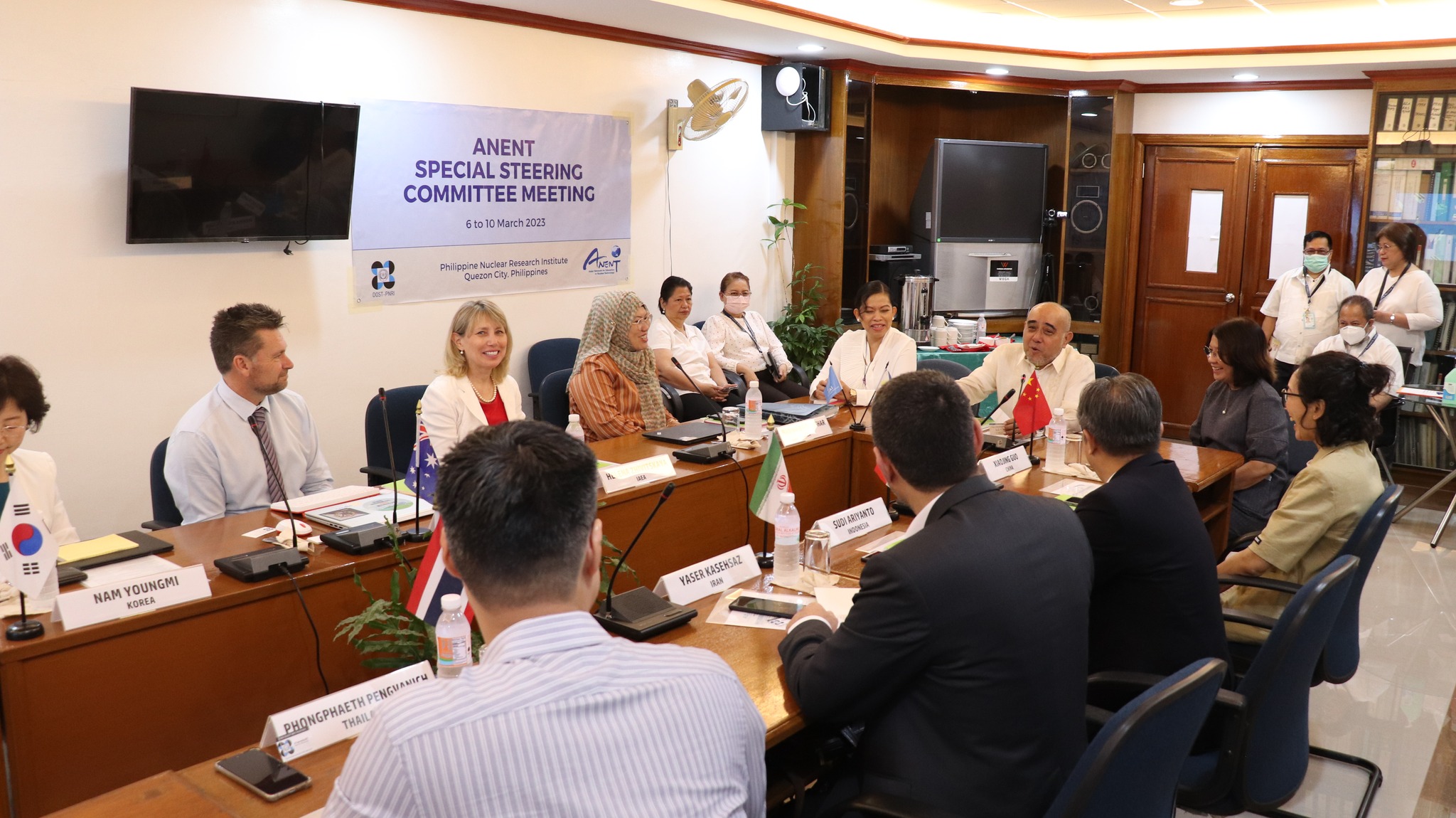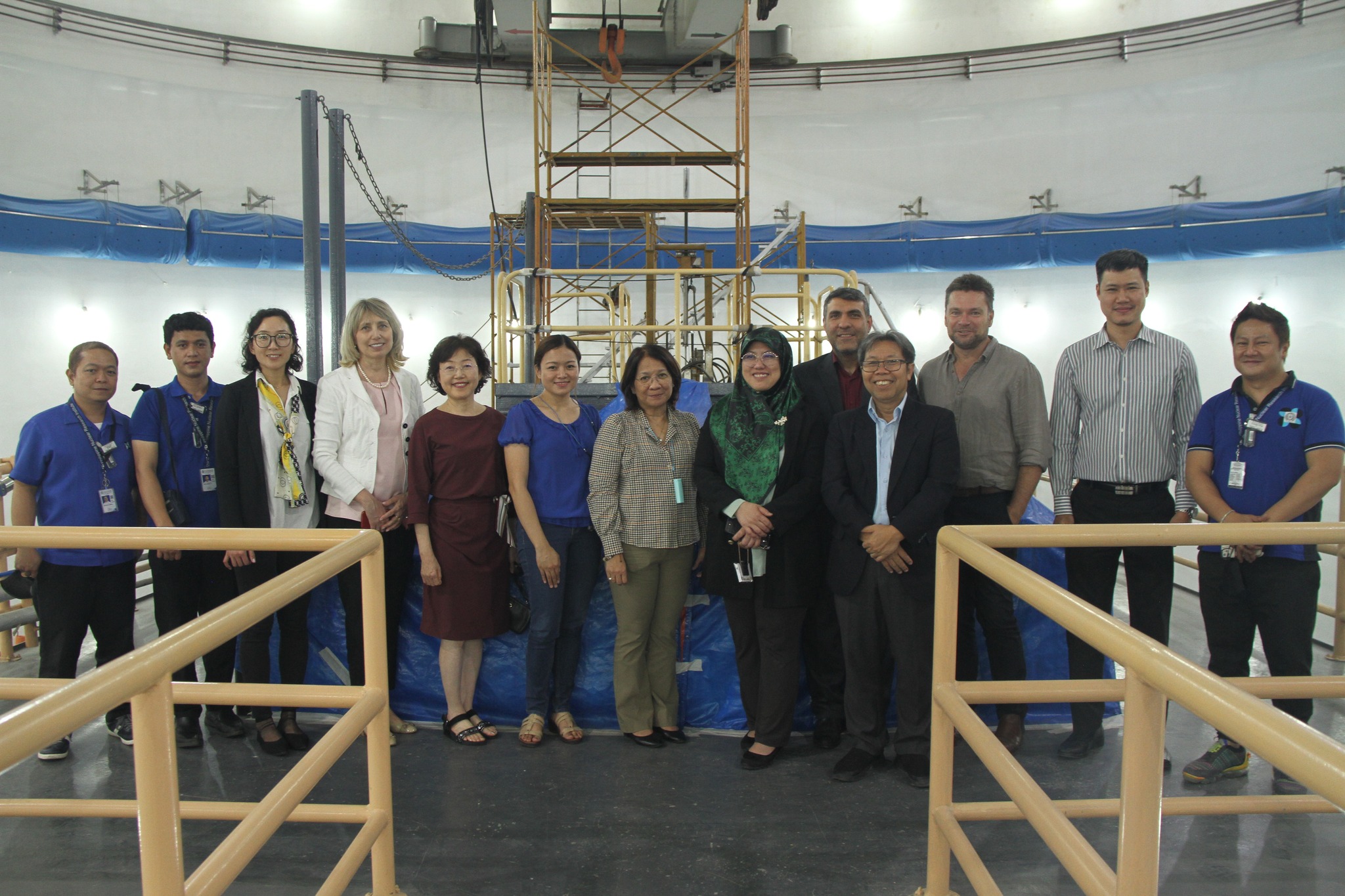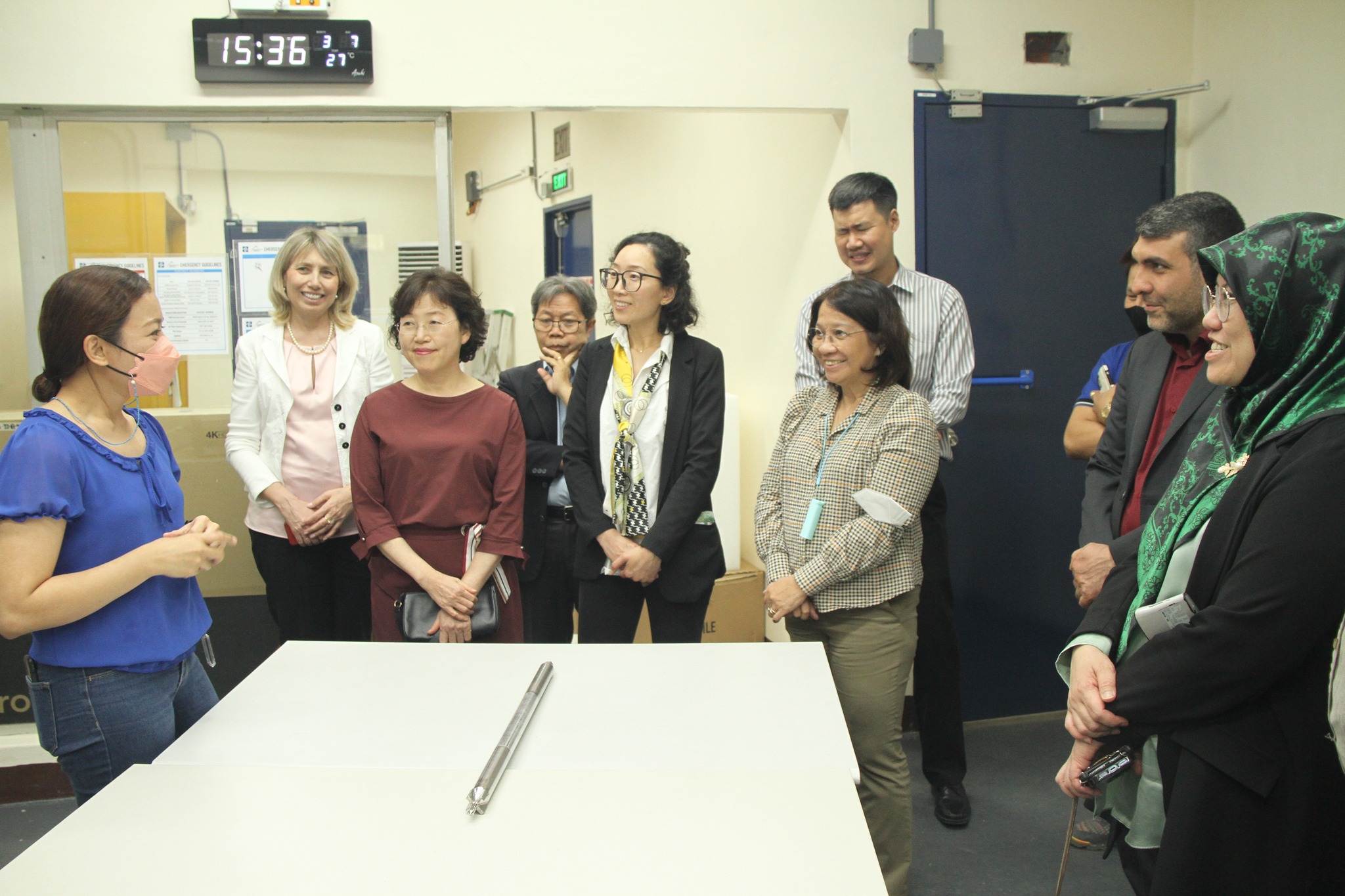PNRI hosts ANENT Special Steering Committee Meeting
- Details

PNRI hosts ANENT Special Steering Committee Meeting
Spearheading the efforts towards the sustainability of nuclear technology in the Asia-Pacific Region, leading representatives from various countries gathered at the Department of Science and Technology - Philippine Nuclear Research Institute (DOST-PNRI) for the Steering Committee meeting of the Asian Network for Education in Nuclear Technology (ANENT) from March 6-10, 2023, led by Ms. Ana Elena Conjares, PNRI Technology Diffusion Division Chief and current ANENT Chairperson.
ANENT is a regional partnership supported by the International Atomic Energy Agency (IAEA) which aims to assist the member countries in capacity building and develop human and scientific infrastructure through cooperation in education, nuclear knowledge management and related research and training in nuclear technology in the Asia & Pacific region.
At present, ANENT has 21 member countries in Asia and the Pacific region.


ANENT representatives visit the Philippine Research Reactor – 1 Subcritical Assembly for Training, Education and Research (PRR-1 SATER) at PNRI
PNRI and PHIVOLCS sign MOU on nuclear S&T in volcanology and seismology
- Details

PNRI Director Dr. Carlo A. Arcilla (2nd from right), PHIVOLCS Director Dr. Teresito C. Bacolcol (2nd from left), PNRI Atomic Research Division Chief Dr. Lucille V. Abad (extreme right), and PHIVOLCS Volcano Monitoring and Eruption Prediction Division (VMEPD) Chief Ma. Antonia V. Bornas (extreme left) during the signing of the MOU between PNRI and PHIVOLCS (Photos from PNRI Nuclear Materials Research Section)
PNRI and PHIVOLCS sign MOU on nuclear S&T in volcanology and seismology
Bringing nuclear science and technology to bear in the field of volcanology and seismology, the DOST - Philippine Nuclear Research Institute (DOST-PNRI) signed a Memorandum of Understanding (MOU) for research collaboration with the DOST-Philippine Institute of Volcanology and Seismology (DOST-PHIVOLCS) on January 25, 2023.
PNRI and PHIVOLCS will work together on several projects covering fields such as geochemistry, volcanism, geothermal and volcano-hydrothermal studies, and active fault mapping and monitoring.
Read more: PNRI and PHIVOLCS sign MOU on nuclear S&T in volcanology and seismology
R&D confab highlights latest innovations in nuclear S&T
- Details

R&D confab highlights latest innovations in nuclear S&T
The Philippine Nuclear Research Institute invites researchers, the academe, students, and interested individuals to the opening of the biennial Philippine Nuclear Research and Development Conference on Dec. 6. To be held virtually on Dec 6 and 8, the PNRDC now accepts registration of attendees at bit.ly/PNRDCregister.
Speakers on the opening day include Dr. Chung Keng Yeow of the Singapore Nuclear Research and Safety Initiative of the National University of Singapore who will speak on “Innovative Nuclear Technologies: Small Modular Reactors” and Dr. Roberto Bedogni of the Frascati National Laboratories of the Instituto Nazioanale Fisica Nucleare in Italy who will present “Radiation Resistant Neutron and Photon Detectors.”
On the second day, Dec. 8, speakers will be Dr. Sobhana Sivasankar of the Plant Breeding and Genetics Section of the Joint FAO/IAEA Center of Nuclear Technologies for Food and Agriculture at the International Atomic Energy Agency in Austria who will talk about “Plant Breeding Mutation” and Prof. Satoshi Minoshima of the Department of Radiology and Imaging Sciences of the University of Utah in the USA who will discuss “Molecular Imaging Biomarkers for Dementia Diagnosis.”
The PNRDC will feature papers and posters highlighting nuclear radiation and technology applications in health and environment; radiation protection, nuclear safety, security, and safeguards; nuclear and radiation technology applications in industry and agriculture; and nuclear engineering, technology, and policies.
The PNRDC, held every other year, started in 2018 as a venue to showcase the latest research, development, and innovations in nuclear science and technology in the Philippines and beyond. This year’s abstract presentations will be included in the second special issue on nuclear S&T of the Philippine Journal of Science. Leading the PNRDC this year are Dr. Alvie Astronomo, Dr. Jordan Madrid, and Dr. Justine Perry Domingo. #PNRDC2022 #nuclearPH #dostPNRI (Nuclear Information and Documentation Section, PNRI)
PNRI Features Medical Tech at 2022 NSTW
- Details
PNRI Director Dr. Carlo Arcilla (middle) is joined by DOST officials as he receives the certificate of recognition on behalf of PNRI for once again having the highest number of international publications among DOST agencies at the 2022 DOST Intellectual Property Awards on November 23 as part of this year’s National Science and Technology Week celebration at the World Trade Center, Pasay City.

At the 2022 NSTW Health Cluster, PNRI researchers explain and demonstrate the various medical applications of nuclear and radiation technologies to visitors from various sectors.
PNRI Features Medical Tech at 2022 NSTW
Coming back strong and timely in the face of continued challenges to the health and well-being of Filipinos, the Department of Science and Technology – Philippine Nuclear Research Institute (DOST-PNRI) joined its fellow agencies in the celebration of the 2022 National Science and Technology Week (NSTW) at the World Trade Center from November 23-27, featuring the latest nuclear and radiation applications in the field of health and medicine.
Among these technologies showcased under the Health Cluster exhibits are the Technetium-99m generator for accurate imaging crucial in diagnosing various diseases, radiation-processed hemostats to reduce or stop the bleeding in medical and emergency settings, and carboxymethyl hyaluronic acid-based hydrogels with potential use in the production of cosmetics, pharmaceuticals and other medicines.
Apart from presenting these latest advances to members of the media during the press conference, PNRI Director Dr. Carlo Arcilla also had the honor of receiving the award on behalf of the Institute, which for the fifth straight year has once again garnered the highest number of awardees at the 2022 DOST International Publication Awards on November 23. With 63 publications in internationally-recognized journals, PNRI’s prolific scientists and researchers were recognized for their respective authorships during the event.
PNRI experts also hosted an online forum entitled Safe Ba Tayo?: Effective Radiation Protection and Radioactive Waste Management on November 25 on Zoom and Facebook Live.
Celebrated every fourth week of November since 2020, the 2022 NSTW is the first such celebration since the COVID-19 pandemic that the event was held in a physical setting opened to the general public.
With the theme Agham at Teknolohiya: Kabalikat sa Maunlad at Matatag na Kinabukasan, this year’s celebration looks forward to the solutions brought by innovative technologies, products and services while also being inclusive to the pressing needs of various sectors and stakeholders, working hand-in-hand for national development through science and technology.















































